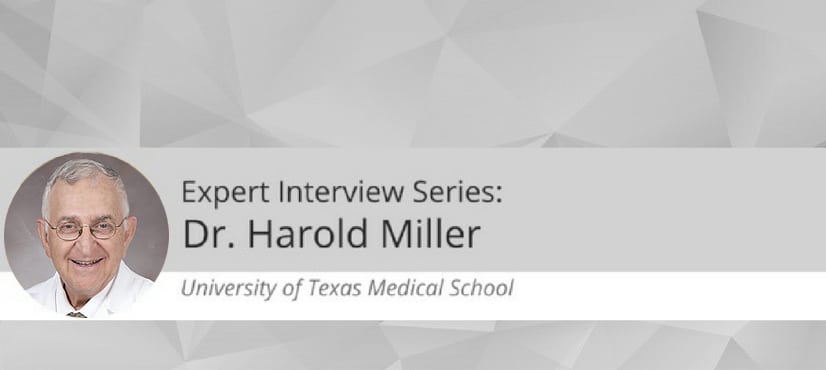
Harold Miller is a professor in the department of Obstetrics, Gynecology and Reproductive Sciences at the University of Texas Medical School.
We recently asked Dr. Miller about his background in OBGYN and about the most important lessons he’s learned in his career. Here’s what he shared:
Can you tell us about your professional background?
I was 5 years old when I decided to become a physician. My best friend’s father was a physician – he was my role model.
I finished high school at the age of 15, college at 18 and medical school at 22. While in college, I worked as a scrub nurse during the summer and holidays. The first surgery that I saw was a Cesarean Section. It was then that I decided that I wanted to be an OBGYN.
I finished my residency in 1966 and entered the Air Force for two years. Afterwards, I started a private practice and was a volunteer at Baylor College of Medicine.
I joined Baylor’s full-time faculty in 1995 and transferred to the University of Texas in 2011. I am currently at University of Texas full time.
What were the most important lessons you learned in your career in practice? What can today’s medical students learn from these experiences?
The important lessons that I’ve learned during my career are:
- People work with me not for me.
- Treat each patient like they are family. When I see a new patient, I tell them that they are not patients of mine but they are my extended family.
- Treat each question that has been asked with dignity.
- Be available. All of my patients have my mobile phone number. Most of the time I can resolve issues over the phone.
Following these principles gain respect from all your patients.
What are some of the major trends or issues you’re following in obstetrics today? Why is it important that med students are aware of these trends?
Medicine has changed since I started. There are many new things available to allow you to practice better medicine. There are newer medicines, techniques and diagnostic tools today that make you a better physician.
What are the smartest things med students can do today to prepare for their careers?
Medical students can prepare for their career by being aware that the field of medicine is enormous. You will not know it all. Use your resources wisely. Know when you need help.
What types of training or experiences would you love to see more med students getting before moving on to professional practice?
Although as medical students we receive a lot of medical education, we also need to understand how to treat patients and to financially manage a practice.
What advice do you find yourself repeating over and over to your students?
I constantly tell my student, that you need to continue to learn. There is a lot of new I information available each day. You need to keep up. When you stop learning, it is time to retire.
How do you believe running a practice in the future will be different from the experiences you’ve had in your career?
In the future I see a trend where most of the physicians have a job, they work for a hospital and draw a salary. They will have defined hours of work and will have more difficulty establishing a relationship with their patients, who will be shared by the group practice.
What are your biggest frustrations with medicine today? What would you love to change?
My biggest frustrations in medicine today is whether the patient has the money or insurance to pay for the service. I became a physician to take care of patients, not to be hampered by a lack of money or insurance.
What tools do you recommend to your students to help make running a practice and/or managing their careers easier?
How to run a practice: Be a physician first and your reputation, respect and practice will follow. Seek practice managers to help you set up a practice. These are commonly associated with the hospital.
Get help managing your practice. Compare plans and pricing.

